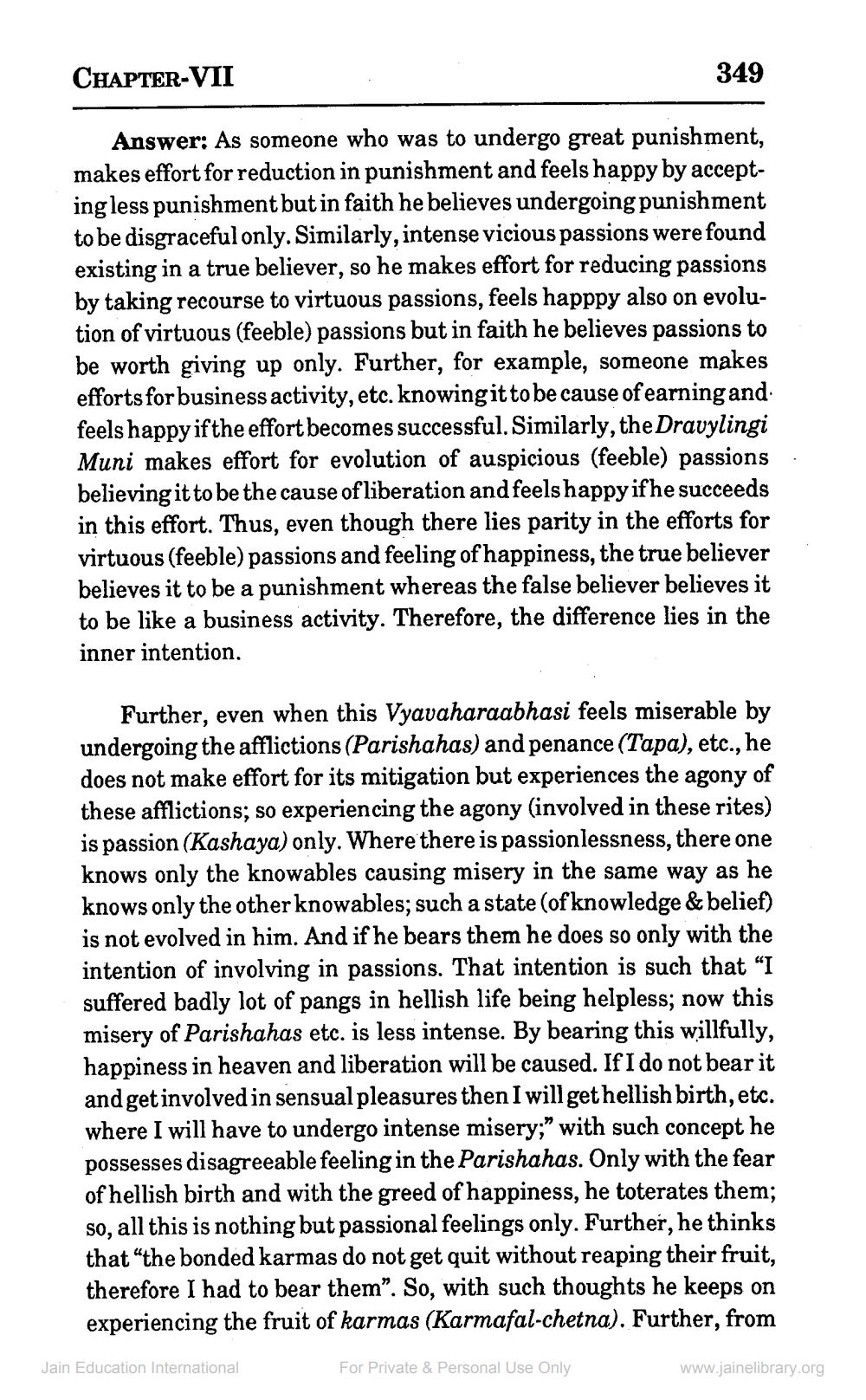________________
CHAPTER-VII
349
Answer: As someone who was to undergo great punishment, makes effort for reduction in punishment and feels happy by accepting less punishment but in faith he believes undergoing punishment to be disgracefulonly. Similarly, intense vicious passions were found existing in a true believer, so he makes effort for reducing passions by taking recourse to virtuous passions, feels happpy also on evolution of virtuous (feeble) passions but in faith he believes passions to be worth giving up only. Further, for example, someone makes efforts for business activity, etc. knowing it to be cause of earning and feels happy ifthe effort becomes successful. Similarly, the Dravylingi Muni makes effort for evolution of auspicious (feeble) passions believing it to be the cause of liberation and feels happy if he succeeds in this effort. Thus, even though there lies parity in the efforts for virtuous (feeble) passions and feeling of happiness, the true believer believes it to be a punishment whereas the false believer believes it to be like a business activity. Therefore, the difference lies in the inner intention.
Further, even when this Vyavaharaabhasi feels miserable by undergoing the afflictions (Parishahas) and penance (Tapa), etc., he does not make effort for its mitigation but experiences the agony of these afflictions; so experiencing the agony (involved in these rites) is passion (Kashaya) only. Where there is passionlessness, there one knows only the knowables causing misery in the same way as he knows only the other knowables; such a state (of knowledge & belief) is not evolved in him. And if he bears them he does so only with the intention of involving in passions. That intention is such that “I suffered badly lot of pangs in hellish life being helpless; now this misery of Parishahas etc. is less intense. By bearing this willfully, happiness in heaven and liberation will be caused. If I do not bear it and get involved in sensual pleasures then I will get hellish birth, etc. where I will have to undergo intense misery;" with such concept he possesses disagreeable feeling in the Parishahas. Only with the fear of hellish birth and with the greed of happiness, he toterates them; so, all this is nothing but passional feelings only. Further, he thinks that “the bonded karmas do not get quit without reaping their fruit, therefore I had to bear them”. So, with such thoughts he keeps on experiencing the fruit of karmas (Karmafal-chetna). Further, from
Jain Education International
For Private & Personal Use Only
www.jainelibrary.org




